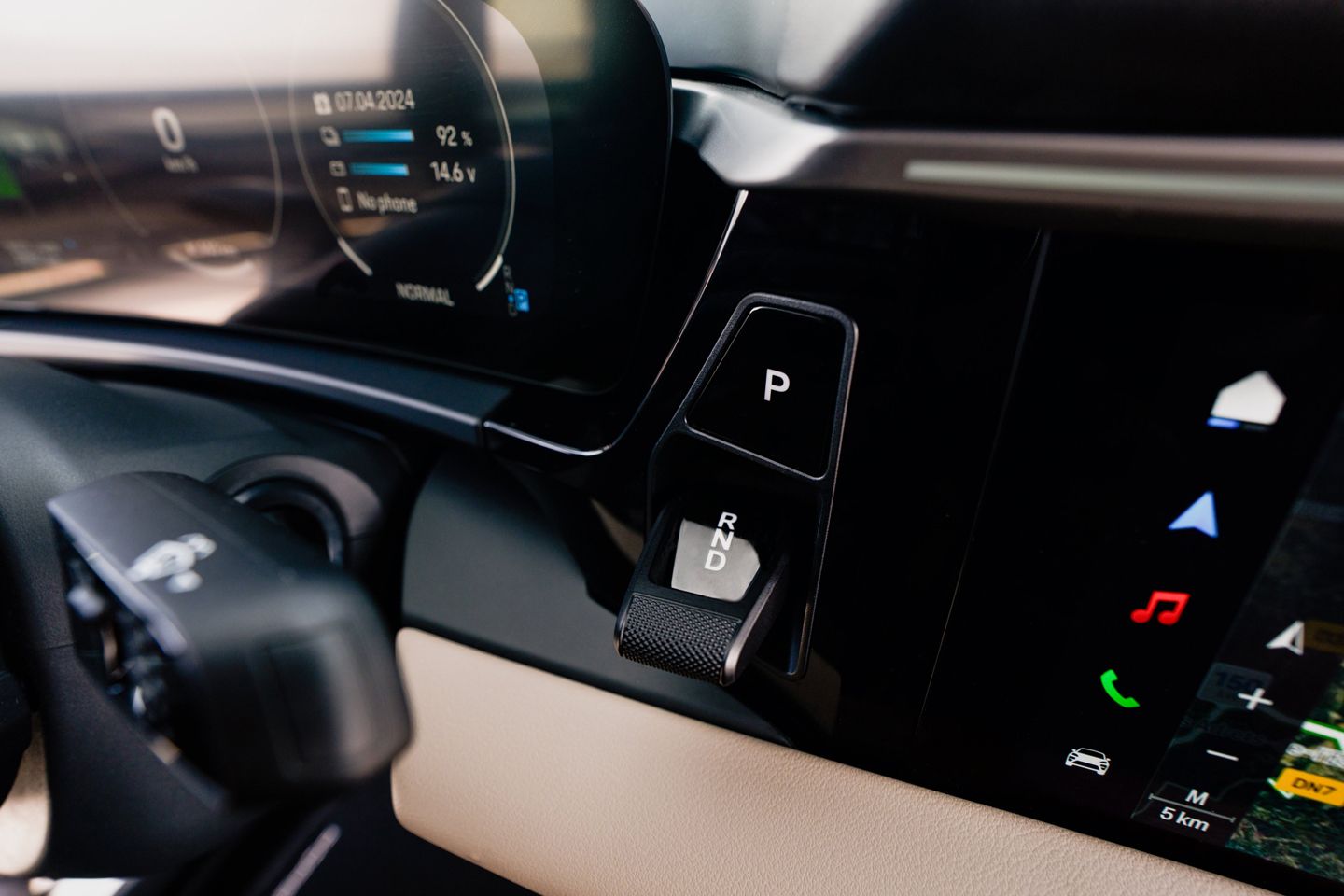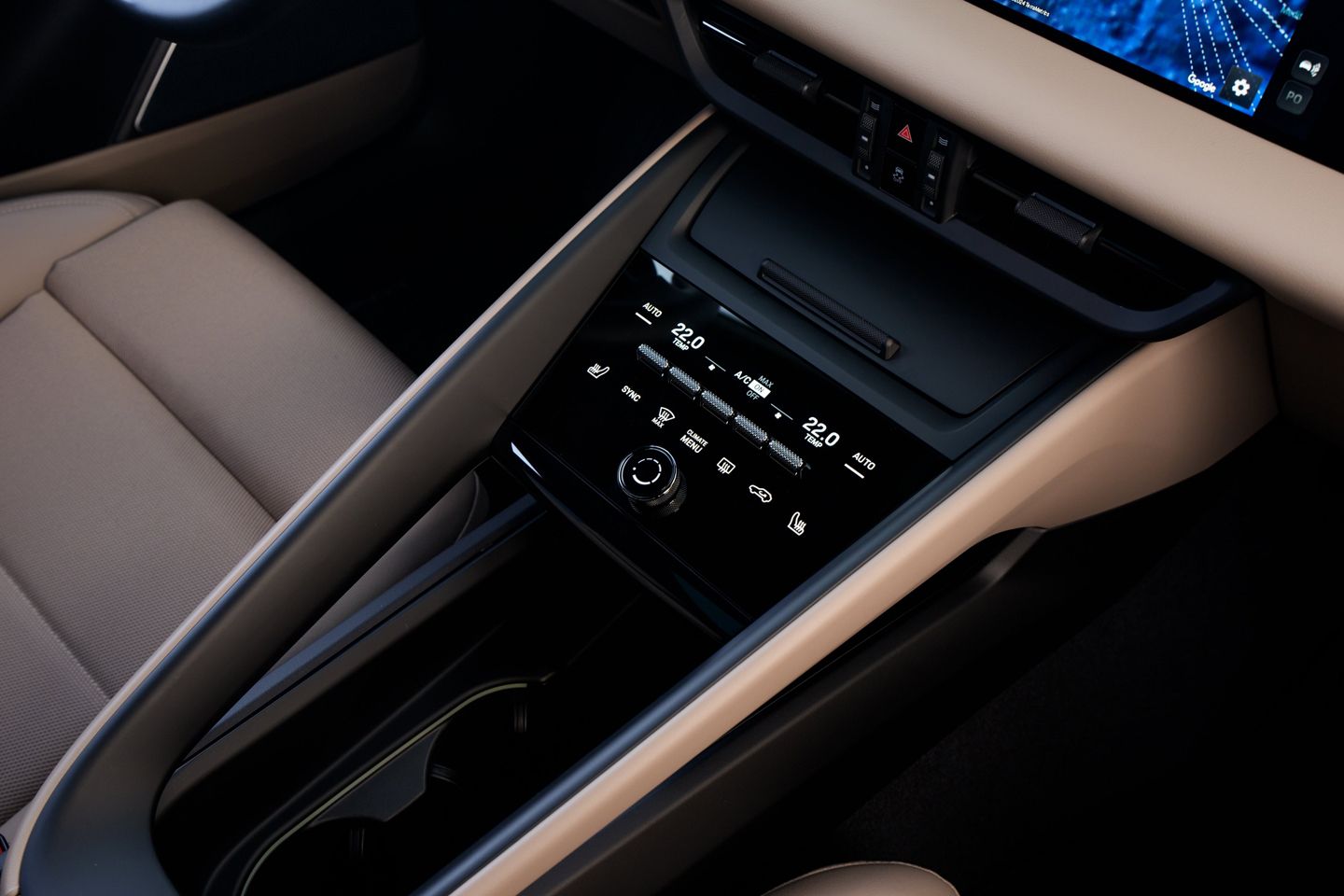2024 Porsche Macan 4 | PH Review
Less powerful version of Porsche's new electric SUV feels like it will be the sweet spot

Porsche’s decision to let journalists drive both versions of the Macan EV back-to-back, on a route involving some of the finest roads in the south of France, was almost certainly in anticipation that we would prefer the faster, edgier and more expensive Turbo version. That’s how performance car hierarchies usually work, after all - more being better. Yet I came away from a day spent in the hills above Nice with a marked preference for the less powerful Macan 4. Not because there is anything wrong with the way the Turbo drives, but because the junior version just seems a more harmonious combination.
Engineering a new electric car like the Macan definitely is not easy, and doing so costs hundreds of millions. But once you have built a new EV it is much simpler to produce a performance derivative than it is with a combustion car. For a high-output petrol or diesel you will need an engine with more cylinders, more displacement, more turbo boost - or possibly all three. That will also require more cooling, a beefier transmission to handle the upgrade, revised suspension and brakes to account for the change in mass - plus many other tweaks and tucks.
Doing the same for an EV is - in relative terms - a doddle. A point made when I walked around a cutaway version of the new Macan’s powertrain at the launch with some of the engineers that had created it. Hardware differences are slight, to put it mildly. The Turbo - which produces 50 per cent more power than the Macan 4 - gets a different rear motor and inverter, bigger front brakes and also standard fitment of a torque vectoring rear differential. Pretty much everything else is common with the lesser car - the same front motor, same 95kWh battery, same cooling system. Pay the extra £2,064 to put air suspension and PASM adaptive dampers on the Macan 4 and you get the same system the Turbo gets as standard, the only changes being software tweaks to account for the fact the 4 is 75kg lighter.


In short, the amount that is shared means that the Macan 4’s £69,800 base price looks like strong value when compared to the Turbo’s £95,000. The comparison isn’t quite that simple, as the Turbo brings a fair amount of extra standard kit as well as performance - and getting the Macan 4 to the same level requires additional outlay. It is also easy to blow straight past that point, with a full options workout taking it north of the Turbo’s base price. According to the build sheet of the Macan 4 I drove in France, it had almost managed the same feat - spec’d to £94,522 had it been delivered in the UK. Not bad for a car that was still riding on standard wheels, with the extras including extended leather (£2,805), carbon side blades (£917), an augmented reality head-up display (£1,694) and the BOSE speaker upgrade (£917).
But you definitely don’t need to turn the Macan 4 into a show pony to enjoy it. Beneath the options there was a fundamental rightness to the balance between performance and handling of the sort that defines a really good car, and which Porsche has always done exceptionally well. There’s no doubt that many buyers will be swayed by the Turbo’s branding and power figures - it is the quickest SUV that Porsche has produced to date, by some margin. But that doesn’t make it a better car, and the Macan 4 feels much more accessible when unleashed on the real world.
Of course, it’s not long since any compact SUV with 387hp (and a 408hp ‘overboost’) would have been at the sharpest end of the segment anyway. And although the Macan 4’s power-to-weight ratio is blunted by the 2,330kg it puts onto the scales, it still delivers serious punch. On Porsche’s numbers, it can get from 0-60mph in 4.9 seconds, making it 0.6 seconds slower than the V6-powered Macan GTS that sits on top of the range of petrol-powered versions. I’ve no reason to doubt that - but I’d also bet that, in any real-world comparison, the EV will have the legs on its V6 half-sister. Throttle response is instant and strong, its speed delivered without the need for a gearbox to kick down or for boost pressure to build. As tends to be the way in EVs, performance is both immediate and apparently effortless.


Of course, compared to the Macan Turbo, the 4 doesn’t feel crazy fast. Getting the Turbo’s throttle to its stop is something that won’t happen often on everyday roads; but the 4’s limits are much more accessible - although it can’t produce the same organ-shunting G-loadings as its quicker sister. Acceleration in the Macan 4 also starts to tail off beyond 80 mph - while the Turbo is still pulling strongly. Which hardly feels like a real-world imposition.
Like the Turbo, the Macan 4 on optional air suspension feels soft in the gentlest Normal mode, and even in Sport or Sport Plus there is still noticeable movement to the chassis as it responds to acceleration, braking and cornering - much more so than in the Taycan. Even as this happens, the adaptive dampers keep the Macan’s considerable mass under tight control - although despite riding on the smaller 20-inch wheels there was still a lumpiness to the way it dealt with France’s XL speedbumps. But on twisty roads and when cruising at speed it felt impressively stable and composed. The unanswered question, having experienced two cars with air suspension, is how well the Macan 4’s standard steel springs would cope with the same challenges. Here’s hoping at least one press car gets built with the basic suspension.
There was no denying that the Macan’s chassis felt more composed with less power and fewer active dynamic systems. In part that is obviously because there is more time between things happening - the manic performance of the Turbo means straights are devoured more quickly, braking events tend to be bigger and it is easier to push closer to the edge of adhesion in even faster bends.


But the Macan 4’s lack of the torque-vectoring rear differential and active rear steering meant it felt much more natural in tighter corners. Responses are less aggressive, yet more linear - and on some of the trickier bits of the Route Napoleon I tackled in both the 4 felt like it was flowing with the road, while the Turbo was trying to fight it into submission. The Macan 4 isn’t nearly as fast, but that’s always been a poor metric for driving enjoyment. I definitely got out of the less powerful car feeling as if I’d had more fun.
Reviews of new EVs inevitably get pulled into the wider argument about the merits and costs of electrification. The Macan Turbo review is already into its eighth page of comments, and this one will probably trigger an equally heated debate. Which is why we’re here, after all. But regardless of the love or hate it engenders, behind the arguments the Macan 4S is an excellent car.
Specification | Porsche Macan 4
Engine: Electric motors (twin, front and rear)
Gearbox: Single-speed gearbox (both axles), all-wheel drive
Power: 408hp (total system peak)
Torque: 479lb ft (total system peak)
0-60mph: 4.9secs
Top speed: 136mph (limited)
Kerb weight: 2,330 kg
Range: 380 miles (WLTP)
CO2: 0g/km
Price: £69,800 (as tested, £94,522)



Gassing Station | General Gassing | Top of Page | What's New | My Stuff



